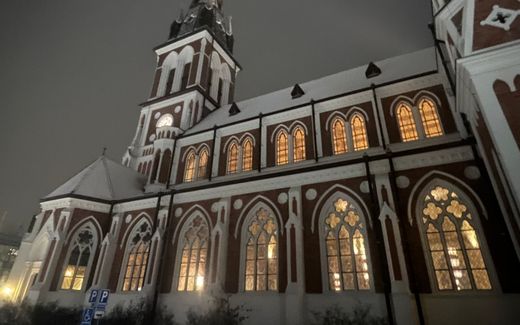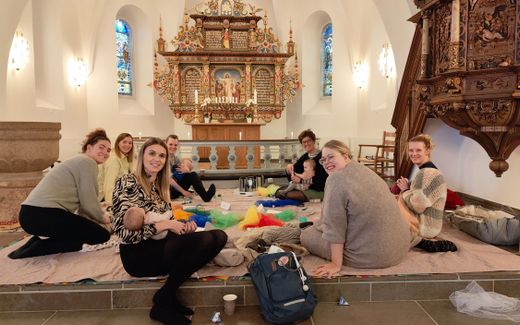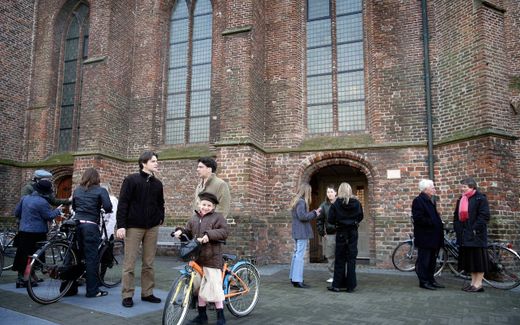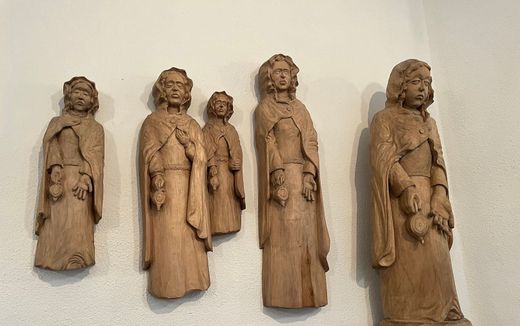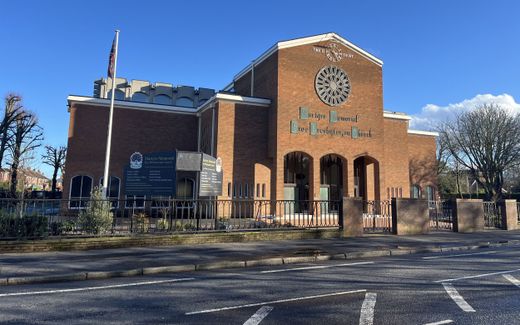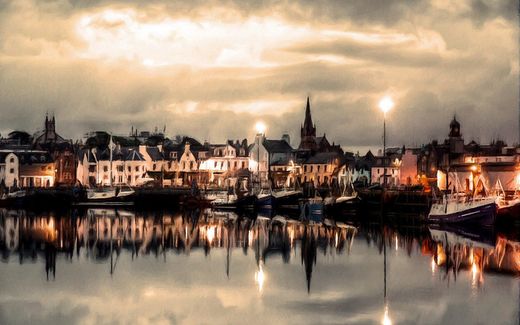How European Biblebelts face new challenges
03-01-2025
European Union
Maarten Stolk, RD
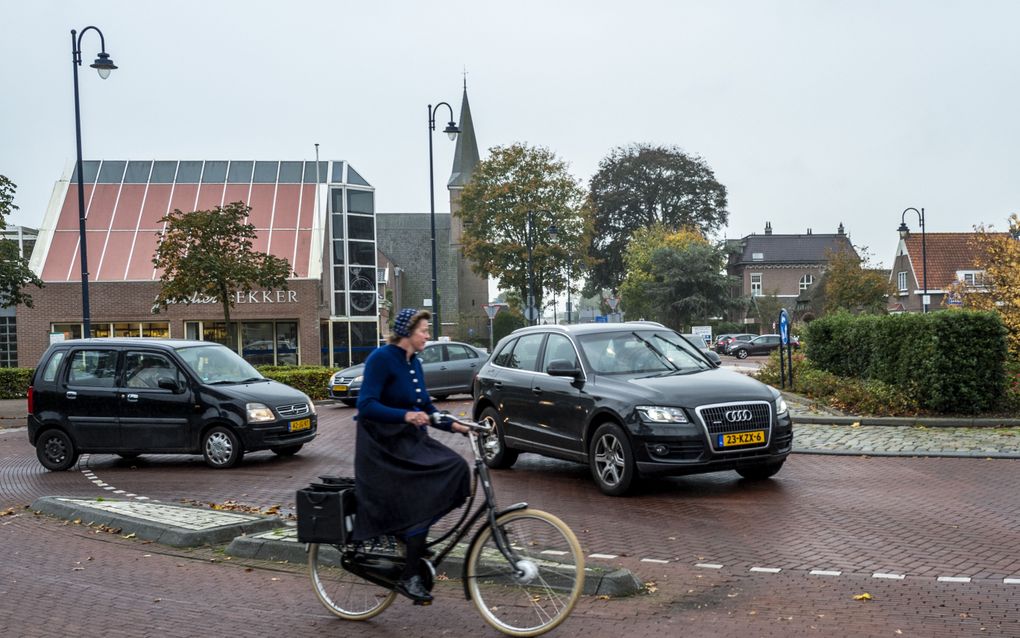
A woman in traditional clothing rides her bike in the Biblebelt town of Staphorst in the Netherlands. Photo ANP, Vincent Jannink
European Union
Christians living in a Biblebelt need not feel exceptional. At least nine European countries have areas with remarkably large numbers of conservative church members.
In the city of Jönköping, the 'Jerusalem of Sweden', some churches attract hundreds of visitors per service every Sunday. In the 7,000-strong town of Stornoway, the heart of Scotland's Biblebelt, there are at least 14 Christian faith communities, and you can choose from many prayer services during the week. At the same time, Christian schools in Finland, Northern Ireland and Scotland, for example, have to make great efforts to support themselves.
All these Christians face the question of how they relate to their secular environment: how do we adhere to Sunday rest, to a Biblical view of marriage, gender and sexuality, and which political party do we vote for? There are different answers to such questions, and the problems in European Biblebelts also vary.
In Finland, mass church attendance is no longer a given; divorce rates are on the rise. In France, there is even a "spiritual war" going on, observed former hospital pastor Charles Nicolas from Alès, the capital of the Cevennes. Since the country enshrined the right to abortion in its constitution in March, he has been wearing a black tie as a sign of mourning.
Having a good time
"It was with great interest" that Prof. Fred van Lieburg read the articles on European Biblebelts that appeared in the Reformatorisch Dagblad in recent months. The Dutch professor of religious history at VU University Amsterdam led the 'European Bible Belts' network from 2016 to 2019, an international project in which scholars studied Bible belts in the Netherlands, Germany, Denmark, Norway, Sweden and Finland. But there appeared to be other areas in Europe that could be labelled Biblebelts: North Antrim in Northern Ireland, the Outer Hebrides in Scotland and the Cevennes in France.
Van Lieburg defines a Biblebelt as a visible group of people in a particular area that is distinguished from the majority of the population by traditional religious (Protestant) values and norms. These are usually small communities that find common ground in their criticism of the 'liberal' state church and, more broadly, the secular society around them. "The mentality is often: we are a small group, living on our own and having a good time together," says Van Lieburg. "And the greater the feeling of being a minority, the more the developments in society are spiritual and apocalyptic. Then the question does arise: are we there only for ourselves or also for the larger world that is in need?"

But not all Christians living in a Biblebelt retreat. Some deliberately remain members of a folk church, says Van Lieburg. Such as those involved in the Indre Mission (Indigenous Mission), one of the revival movements within the Lutheran Church in Denmark. It wants to form a counter-movement within the liberalised folk church, where it believes the Word is no longer central.
Räsänen
The Dutch Biblebelt is home to a relatively large number of Reformed pietists, "fairly tightly demarcated along the lines of church denominations". In contrast, other countries tend to have concentrations of conservative Lutherans or Evangelicals, who are "less ecclesiastically profiled", according to Van Lieburg. "That we have our own churches and schools in the Netherlands is quite unique in that respect," he said.
He has noticed increasing contacts between conservative Christians in the Netherlands and abroad. "The Finnish politician Päivi Räsänen, who is under criticism in her country for her expressions on homosexuality, was invited to speak in Gouda, last May. Here, you can see that new feelings of connection are emerging with groups we did not previously have in sight at all. Even ecclesiastically: one of the Dutch church denominations sent a delegation of office bearers to a Swedish church based on the Westminster Confession."
According to the Amsterdam professor, this is partly due to secularisation, a concept that is "obviously very much between our ears". Mutual recognition arises with people who share the same values and norms. "Those contacts are not so much strictly along theological lines, but more along cultural lines."
Van Lieburg also sees increased cooperation in the areas of politics and education. Reformed schools in the Netherlands, for example, are establishing contacts with Christian schools in other countries. In the so-called European Alliance for Christian Education, they support each other. Vulnerable public schools in Scotland, such as in Edinburgh, Inverness and Stornoway, receive help from the Netherlands.
Metaphor
Van Lieburg is cautious in using the term Biblebelt to refer to a particular area or orthodox group of Christians. According to him, it is mainly about a "narrative", a frame with which secular people interpret others. "A metaphor, in other words. I don't think regions and Christians in different European countries really have a common identity. With such a series in the newspaper, and also with our network European Bible Belts and its Dutch variant, the Dutch Bible Belt Network, we are in a way creating another myth."
And that seems to be true. Most Christians living in a Biblebelt are not so aware of it. Or they don't like to talk about a Biblebelt. "No, we would never call the Isle of Lewis that," says Scottish pastor James Maciver. "When we think of a Biblebelt, we think of fundamentalist Christians in the southern United States."
At the same time, some media, such as in Germany, like to create the image that areas with proportionately large numbers of orthodox Christians are somewhat "backward". Maciver, too, can relate to this: when the first mosque opened on the island in the Outer Hebrides in 2018, numerous broadcasters and newspapers stood immediately on the Free Church of Scotland's doorstep. "I think they were looking for a story about the great closedness of Presbyterian churches," says the Stornoway-based pastor. "They thought we would object to the license with the municipality. But no, I started by saying that while we completely reject the teachings of Islam, we stand for freedom of religion, freedom of conscience and freedom of speech. They were very surprised at that."
Do Europe's Biblebelts have a future? Van Lieburg: "Of course, it is not their goal to be or remain Biblebelts. Some groups will partly integrate into society and partly merge into other alliances. There may be unexpected twists and turns, as with the American evangelical movement that is falling under the spell of Trumpism. Christians in a Biblebelt should know well what to do for them and their children in this century."
This article was translated by CNE.news and published by the Dutch daily Reformatorisch Dagblad on July 1, 2024
Related Articles

